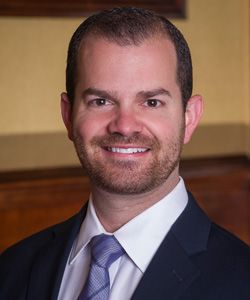Concussion Clinic
What are the Signs and Symptoms of Concussion?
Most people with a concussion diagnosis have a good recovery from symptoms experienced at the time of the injury. But for some people, symptoms can last for days, weeks, or longer.
In general, recovery may be slower among older adults, young children, and teens. Those who have had a concussion in the past are also at risk of having another one and may find that it takes longer to recover if they have another concussion.
Symptoms of Concussion
Symptoms of concussion usually fall into four categories. Click the headings below for details.
Thinking/Remembering
- Difficulty thinking clearly
- Feeling slowed down
- Difficulty concentrating
- Difficulty remembering new information
Physical
- Headache, fuzzy or blurry vision
- Nausea or vomiting (early on), dizziness
- Sensitive to noise or light
- Balance problems
- Feeling tired, having no energy
Emotional/Mood
- Irritability
- Sadness
- More Emotional
- Nervousness or anxiety
Sleep
- Sleeping more than usual
- Sleep less than usual
- Trouble falling asleep
Some of these symptoms may appear right away, while others may not be noticed for days or months after the injury, or until the person starts resuming their everyday life and more demands are placed upon them. Sometimes, people do not recognize or admit that they are having problems. Others may not understand their problems and how the symptoms they are experiencing are impacting their daily activities.
The signs and symptoms of a concussion can be difficult to sort out. Early on, problems may be missed by the person with the concussion, family members, or doctors. People may look fine even though they are acting or feeling differently.
When to Seek Immediate Medical Attention for Possible Concussion Treatment
Danger Signs in Adults
In rare cases, a dangerous blood clot may form on the brain in a person with a concussion and crowd the brain against the skull. Contact your health care professional or emergency department right away if you have any of the following danger signs after a bump, blow, or jolt to the head or body:
- Headache that gets worse and does not go away
- Weakness, numbness or decreased coordination
- Repeated vomiting or nausea
- Slurred speech
- Look very drowsy or cannot be awakened
- Have one pupil (the black part in the middle of the eye) larger than the other
- Have convulsions or seizures
- Cannot recognize people or places
- Are getting more and more confused, restless, or agitated
- Have unusual behavior
- Lose consciousness (a brief loss of consciousness should be taken seriously and the person should be carefully monitored)
Danger Signs in Children
Take your child to the emergency department right away for possible concussion treatment if they received a bump, blow, or jolt to the head or body, and:
- Have any of the danger signs for adults listed above
- Will not stop crying and cannot be consoled.
- Will not nurse or eat







